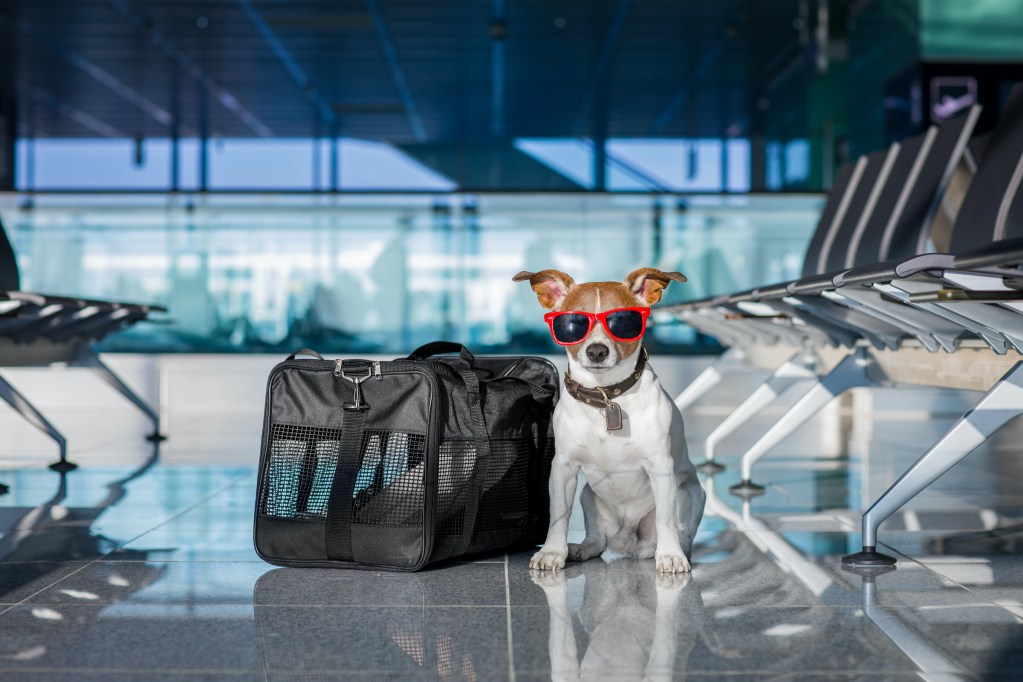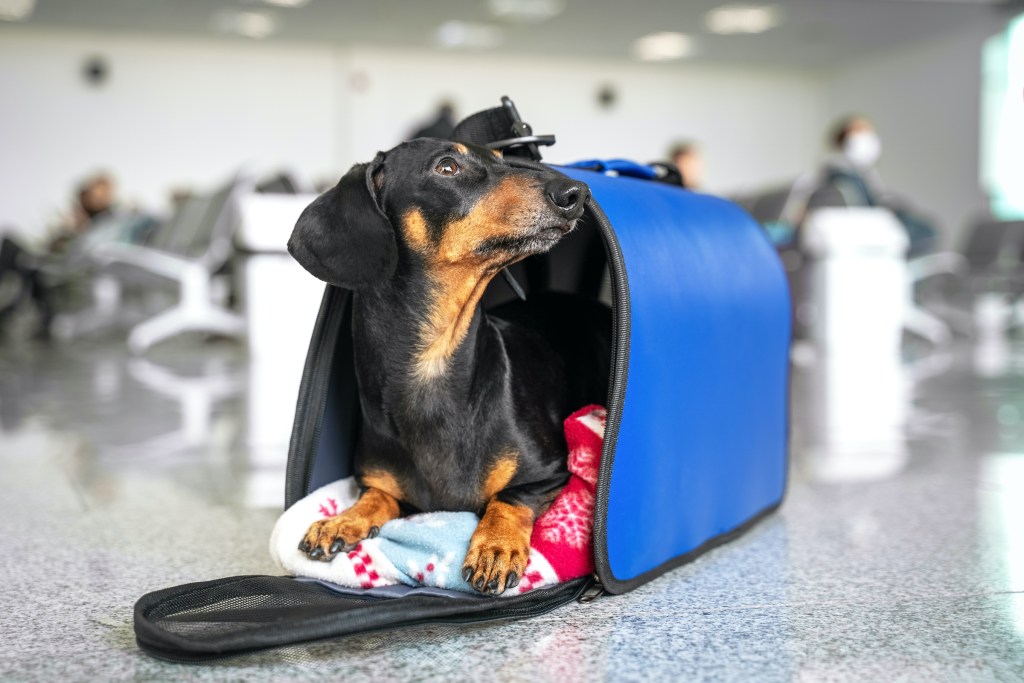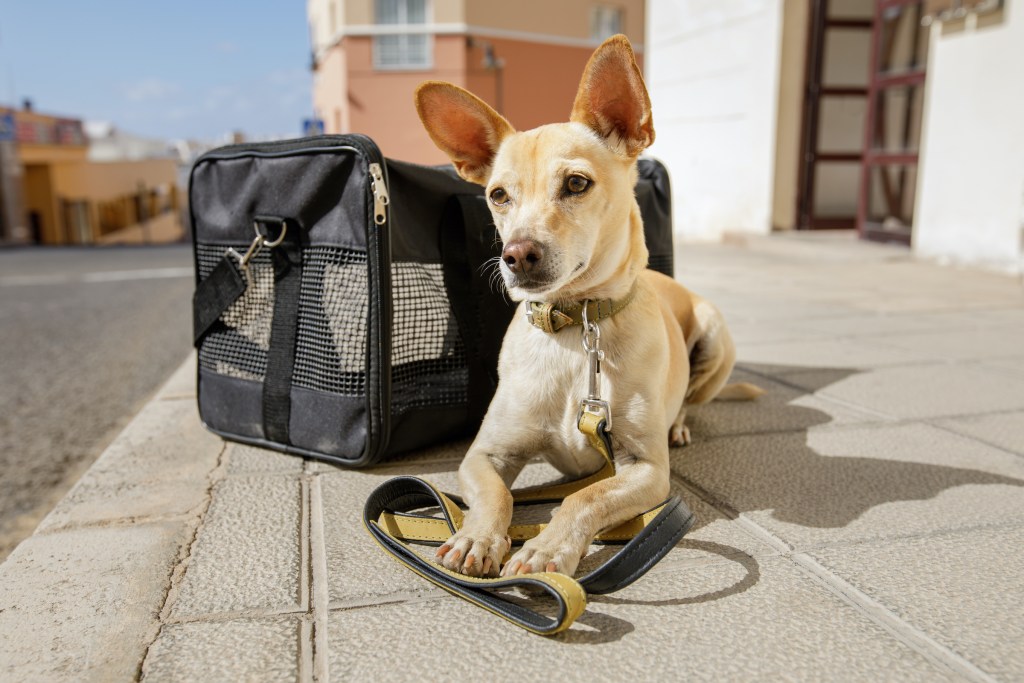Ready for summer vacation? Traveling with your dog can be so much fun (and way cuter than traveling alone), but there may be more to plan for than you realize. Aside from meeting all well-known travel regulations — keeping your pet in a carrier, and all that jazz — did you know you’ll need some official documents, too? Most venues and transportation companies require this special certification before letting pets on board, but you can start the process with just a phone call or two.
With this dog health certificate for travel — and everything else checked off your to-do list — you and your pup will be ready to hit the road. Here’s what you need to know about this essential document.

What is an animal health certificate?
An animal health certificate, known as a Certificate of Veterinary Inspection (CVI), is a document your pet can receive in order to travel within the US or internationally. The American Veterinary Medical Association explains that these certificates are often required by an airline, railway, or even event venue “to ensure that the animals being moved do not carry illnesses or parasites that would be harmful to the people or animals that are in the destination area or that are participating in the same event.”

What is required for a dog to travel?
According to the AVMA, many events, venues, and methods or transportation require a CVI before an animal is cleared to travel, though the specific requirements vary by departure location, destination, company, and species. These can include veterinary checkups, bloodwork, vaccinations, or other procedures. Even licensed service animals will need a CVI where required, notes Muller Veterinary Hospital.
Despite the possibility of differences, there are a few basic requirements that all small animals and owners need to meet in order to travel where CVIs are necessary (via the AVMA):
- a thorough physical examination by a federally accredited veterinarian (in most states)
- up-to-date vaccinations and identification
- contact information of a veterinarian at your destination
- federal endorsement of the CVI (if traveling internationally)
As you can likely assume, completing this checklist (as well as any additional steps) can be incredibly time-consuming. You’ll want to start checking off tasks well before your travel date, especially since documents can need time to get approval once completed.
Be forewarned that a completed CVI is not a substitution for meeting all travel requirements for pets at airlines, railways, or venues. You still need to double-check specific rules and regulations for wherever you’re traveling.
How long does a pet health certificate last?
You will want to double-check the exact requirements for your destination, as there can be some variability. For the most part, though, a CVI is considered valid for travel within 30 days of the document being issued (via the California Department of Food and Agriculture). Some places may require traveling within a shorter amount of time as the exam is due to quarantining or medical concerns, so don’t wait to check.

Which airlines require health certificates for pets?
It’s a safe bet to say that you’ll need a CVI in order to fly with your pet since most airlines require one in order for an animal to board the plane. More specifically, they require a CVI to be issued within 10 days of your flight. In order to comply with federal regulations, your dog will also need to be at least eight weeks old and completely weaned for five or more days, notes the AVMA.
Many flights also require an additional document that waives the airline’s responsibility for guaranteeing a minimum and maximum environmental temperature for pets in the cargo hold. This is called the acclimation certificate, notes the AVMA, and can also be granted by a veterinarian when receiving a CVI. It may be required when an airline cannot guarantee that the temperature in the cargo hold will stay within a certain range. Needless to say, this is not a safe move for all pets, especially if they have pre-existing health concerns. You and your veterinarian will need to talk to make the best decision for your dog.
How to get a dog health certificate for travel
If you want to start the process of having your dog certified for travel, you can start by finding a federally accredited veterinarian to perform the exam and issue the documents. Many veterinarians are already accredited, so it’s never a bad idea to ask the office you’re already established with. There are currently no other ways to have your pet approved for a CVI, so don’t trust anything you don’t find in a vet’s office.
With enough time to prepare and make all of your appointments, receiving a Certificate of Veterinary Inspection for your dog can be a breeze. With all of this out of the way, you’ll be able to plan the best trip for you and your furry travel companion. Happy trails!



